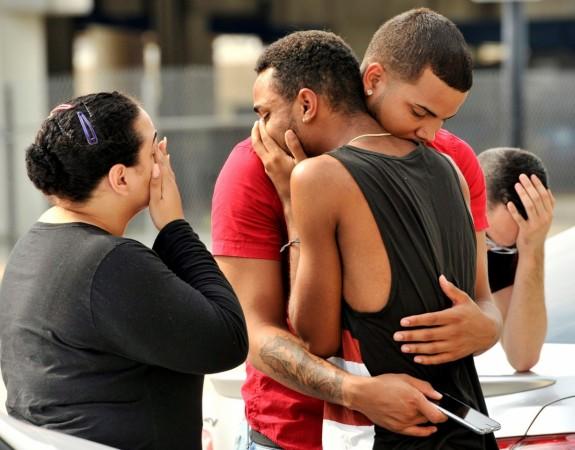
In grief-stricken Orlando, homosexual men mourning the loss of their partners, friends and fellow community members are also frustrated over the federal laws that impose strict conditions for blood donation by gay men. The massacre in a gay nightclub on Sunday, said to be the deadliest mass shooting in the history of the United States, killed 49 and left 53 people injured.
Among the many people lining up at blood banks for donating blood, several are from the LGTB (Lesbian, Gay, Transgender and Bisexual) community who wish to help. But they are being turned away because of the current rules.
The federal laws state that gay men can only donate blood if they have had no sexual relations with another man for at least a year. In other words, sexually active gay men are barred from donating blood due to the risk of HIV transmission, the Agence France Presse reported.
"I am married. I am gay and sexually active with my husband, of course. But I am ineligible to donate blood," Rob Domenico, a board member and chief fundraiser at The Center, Orlando's main LGTB community centre, was quoted by the AFP as saying.
The LGTB community is coming together like never before to show solidarity. Florida's largest LGTB rights group, Equality Florida, raised a record $2.1 million in nearly 27 hours following the mass shooting to help the victims, the Washington Post reported.
Orlando's LGBT community centre arranged for counselling of victims and eye-witnesses of Sunday's shooting and supplied food, drink and toiletries to their families.
Chris Callen, 34, who worked at the Pulse nightclub where the shooting took place told AFP he lost seven of his friends in the incident. But he could not donate blood since he is HIV positive.
The outraged gay men worrying about the wounded victims can take heart from the fact that blood banks are also witnessing long queues of straight people wanting to donate blood. OneBlood, a blood bank, received 5,300 blood collections on Sunday, thrice the number registered on any normal day. They are expecting huge rush in the forthcoming days.
"There may be lines for days to come, but we're trying to see everybody who comes to a donor center," Pat Michaels, a OneBlood spokesman, was quoted by the Orlando Sentinel as saying.

















